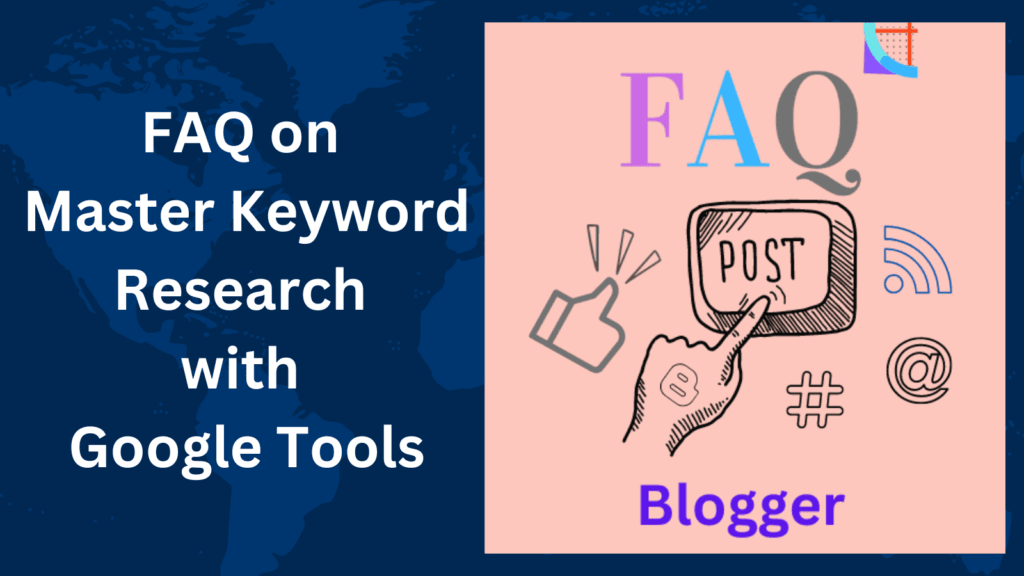
What is keyword research, and why is it important for SEO?
Answer: Keyword research is the process of identifying the terms and phrases people use to search for information, products, or services online. In SEO, it is important because it helps businesses understand the search intent of their target audience, ensuring that they can optimize their website content to align with those search terms. This improves visibility on search engines, driving more relevant traffic to the site.
How does keyword research impact digital marketing strategies?
Answer: Keyword research is essential in digital marketing because it guides the creation of content that resonates with potential customers. By understanding which keywords your audience is searching for, you can develop tailored ads, blog posts, social media campaigns, and other marketing materials that address those specific needs, ultimately increasing engagement, conversion rates, and ROI.
What are the types of keywords to consider in SEO?
Answer: There are several types of keywords to consider in SEO:
- Short-tail keywords – Broad and highly competitive terms (e.g., “shoes”).
- Long-tail keywords – More specific phrases with lower competition (e.g., “women’s running shoes for flat feet”).
- Branded keywords – Keywords related to a brand or product name.
- LSI keywords (Latent Semantic Indexing) – Related terms that help search engines understand the context.
- Local keywords – Terms targeting local searches, such as “best pizza in New York.”
How do you perform keyword research effectively?
Answer: To perform keyword research effectively, start by brainstorming a list of relevant topics related to your business or industry. Use keyword research tools like Google Keyword Planner, SEMrush, or Ahrefs to discover search volume, competition, and related keywords. Analyze competitors’ keywords, evaluate search intent, and prioritize long-tail keywords to capture more targeted traffic. Additionally, track the performance of selected keywords to refine your strategy over time.
What tools can help with keyword research for SEO?
Answer: Several tools can assist with keyword research, including:
- Google Keyword Planner – Ideal for discovering search volume and related keywords.
- SEMrush – Provides detailed keyword data, competition analysis, and tracking.
- Ahrefs – Offers keyword suggestions and backlink analysis.
- Moz Keyword Explorer – Helps find keyword opportunities and assess difficulty.
- Ubersuggest – A free tool for exploring keyword ideas and search trends.
How often should keyword research be updated?
Answer: Keyword research should be updated regularly to stay aligned with changing search trends and audience preferences. It’s recommended to revisit your keyword strategy every few months, especially after algorithm updates, new competitors, or shifts in consumer behavior. Continuous monitoring ensures that your content remains relevant and optimized for the right terms.
Can keyword research improve my website’s search engine rankings?
Answer: Yes, keyword research is crucial for improving search engine rankings. By targeting the right keywords in your website’s content, meta tags, headings, and URLs, search engines can better understand your page’s relevance to a particular query. Optimizing for high-value keywords increases the likelihood of ranking higher on SERPs (Search Engine Results Pages), driving more organic traffic.
How does keyword research help with content creation?
Answer: Keyword research informs content creation by identifying the topics and phrases that your target audience is actively searching for. By integrating these keywords naturally into your content, you ensure that your website addresses the questions and needs of your audience. This not only boosts SEO but also helps create more engaging, relevant, and useful content that resonates with readers.
What is search intent, and how does it affect keyword research?
Answer: Search intent refers to the reason behind a user’s query — whether they are looking for information, making a purchase, or seeking a solution. Understanding search intent is crucial for keyword research because it helps you choose keywords that align with the user’s goal. There are three main types of search intent: informational, transactional, and navigational. Targeting the right search intent ensures that your content fulfills the user’s needs, leading to higher engagement and conversions
What mistakes should be avoided during keyword research?
Answer: Common mistakes to avoid during keyword research include:
- Focusing solely on high-volume keywords – These can be highly competitive and may not bring in qualified leads.
- Ignoring long-tail keywords – They often have lower competition and can drive more targeted traffic.
- Not considering search intent – Failing to match the keyword with the user’s intent can result in irrelevant traffic.
- Overlooking competitor analysis – Competitor research provides valuable insights into successful keywords and gaps in your strategy.
- Neglecting keyword performance tracking – Regularly monitor keyword performance to ensure your strategy remains effective.
Check out the FAQ on Ultimate Guide to Keyword Research